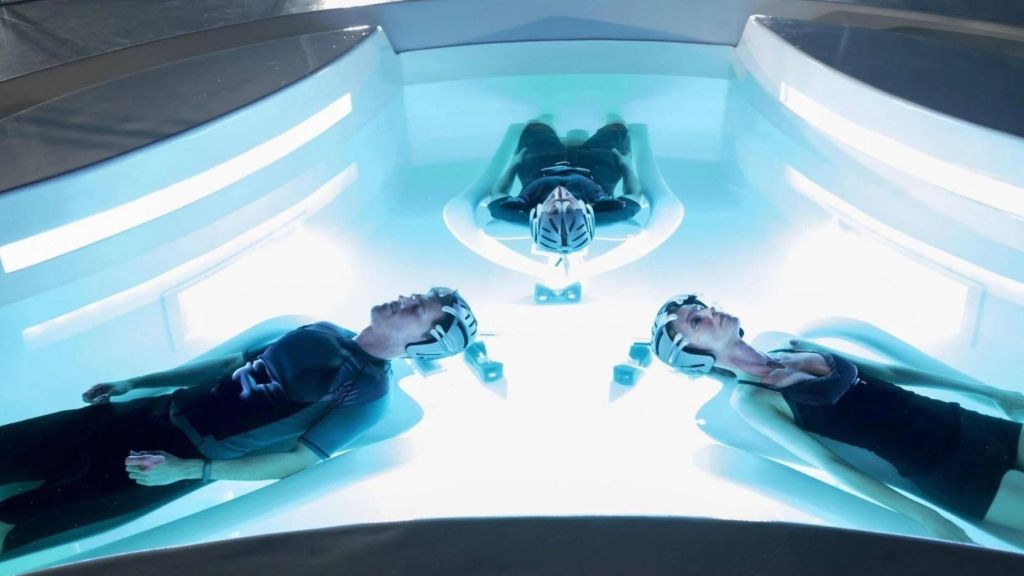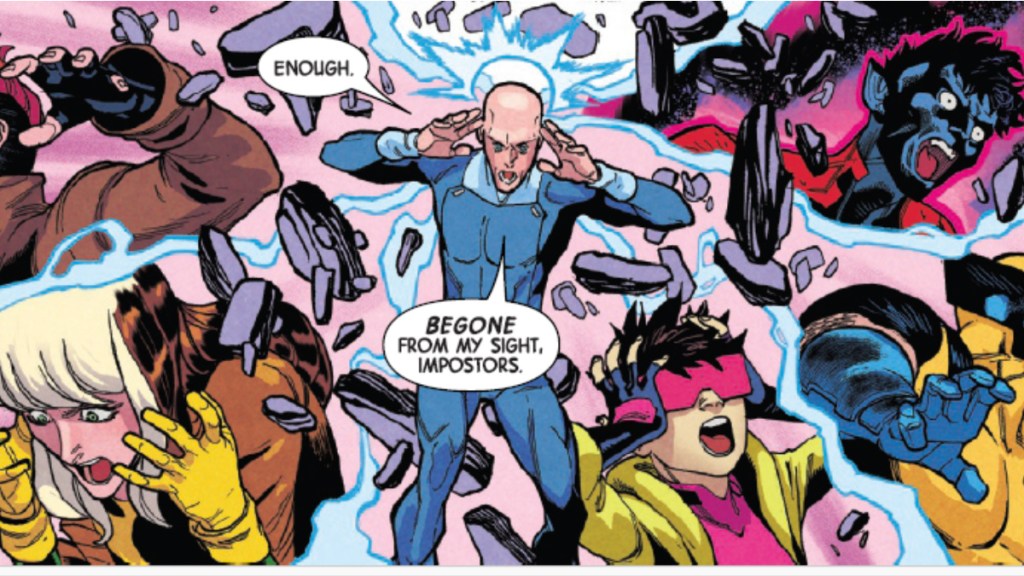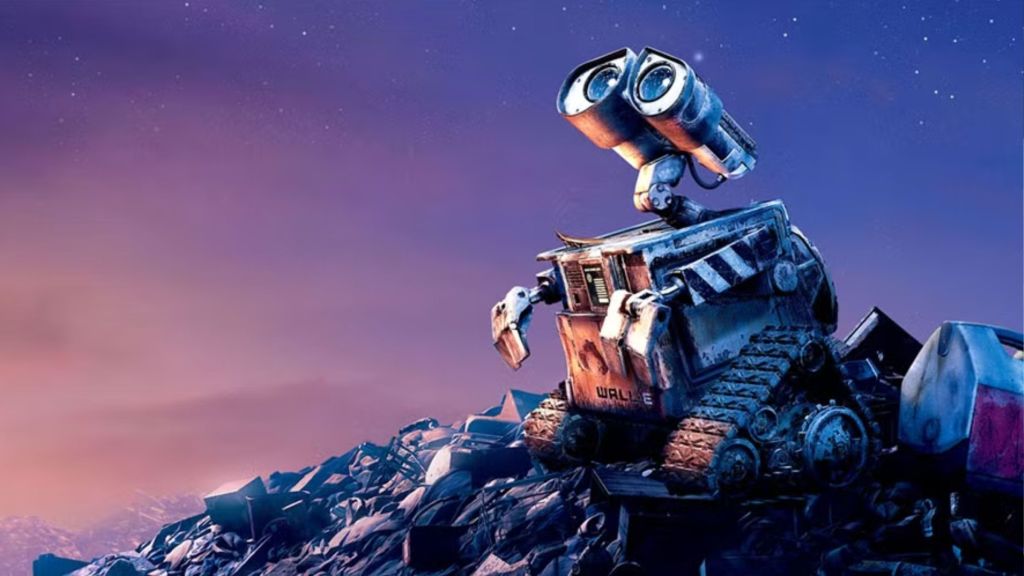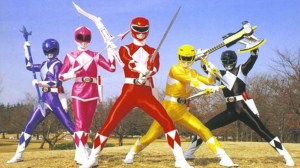Trends come and go. Five years ago, fantasy and superheroes were in their heyday, with Avengers: Endgame hitting the highest points for the Marvel Cinematic Universe. That said, the superhero fatigue (especially when directed at MCU productions) is real, and we need a break; what we need right now is more science fiction. Sci-fi is a classic means for humanity to process complex themes and subjects, which is why the genre has survived the test of time, changing alongside world cultures. Because of this, we need more sci-fi tales – we need to see Hollywood doubling down on this trend, ideally by doing more than the endless cycle of remakes.
Videos by ComicBook.com
Sci-fi has a unique way of helping people process the world around them, taking complex concepts and turning them into digestible content. But it’s more than that, as sci-fi gets people looking to the future, and the potential good and bad of it all. The best part about sci-fi is that it can approach these concerns and open the door to discussions, all without sounding preachy. In other words, without chasing away a large part of the population. Just look at Star Trek! The entire franchise is focused on an inclusive and optimistic future, free of material needs.
Science Fiction, Human Psychology, and the Implementation of Technology

There’s no denying the crossroads that society is at. We live in a tech-obsessed world, and we’re on the cusp of a new shift, thanks to the rising utilization of AI. Looking at the world as it stands may feel overwhelming or impossible; thankfully, there’s a fictional lens that makes approaching it a bit more comfortable.
Sci-fi has long been there to provide us with a sort of mental blueprint for how to handle unfamiliar situations. That phrase is probably making you think of first contact, but it can also be applied to implementing technology. For every dilemma and concern of the modern world, there’s a sci-fi mirror available to help us process these emotions, preparing us for what may lie ahead. For example, Ex Machina and Westworld both explore concepts of machine consciousness and identity, while Ursula K. Le Guin’s The Left Hand of Darkness explores gender and emotion in the context of a larger (read: alien) society.
Finally, since sci-fi often looks to the future, it allows society to explore the societal impact of technology before it becomes a thing. For example, Terminator has been screaming about the risk of AI for decades, though it does so by pushing the concept to the extremes. Likewise, the Minority Report explored the concept of predictive policies and the resulting ethical concerns. Meanwhile, Gattaca portrayed a society capable of genetically engineering children and openly discussed the potential problems of bias and hierarchy stemming from this.
RELATED: 10 Best Sci-Fi TV Shows of All Time (According to Rotten Tomatoes)
Sci-Fi As a Means of Addressing Clashing Ideologies

Thanks to the internet, discourse has never been quite so rapid. But rapid means of communication aren’t without problems, as they lead to an inevitable clash of ideologies that can leave a person feeling like they’re drowning in a sea of angry voices. It’s a lot to process, and that’s without these conversations becoming personal, which they almost alwasy do. Sci-fi can help people find a safer means of processing this information, letting us live in a world of allegory and symbolism. The X-Men portray a conflict of ideologies, and while the foundation is undeniably human in nature, it feels distanced enough for readers to plunge in.
When discussing the dichotomy between “us vs. them,” there’s no better genre than sci-fi. Aliens make a common stand-in, pitting humanity against something undeniably “other.” What’s important about this theme is that different stories place humanity on opposing sides. Sometimes, like in Avatar, humans are the aggressors. In sci-fi-horror, humans are targeted by superior alien races. Finally, there are tales like Star Trek that put humanity alongside dozens of other alien cultures, letting them converse, debate, and work together.
[RELATED: 10 Coolest Sci-Fi Movie Robots]
Sci-Fi Can Offer a Spark Of Hope In Bleak Times

Even in the bleakest times, fiction can offer an escape from reality. This is certainly true for sci-fi, which can provide a spark of hope for the future. Science fiction looks to the future, and while creators will sometimes dive into darker potentials, many more are looking to the more positive side of things.
Enter the Solarpunk movement, tucked neatly inside the world of sci-fi. Solarpunk portrays an optimistic view of the future, believing that humanity will find a balance with nature. There are many core themes one can find in Solarpunk stories, including decentralized systems, environmental justice, radical hope, harmony, and more. Returning to an example we’ve used a few times, Star Trek perfectly fits within this definition, as it portrays a society that fights to protect people and planets. The best part about Solarpunk is that it can be found in unexpected places, even kids’ movies.
WALL-E may have a post-apocalyptic origin, with humanity nearly destroying the world, but the underlying message is one of hope. The people who survived and returned to Earth did so understanding the wrongs society had made, and the price everyone (the planet included) paid. As such, there’s the belief that this time around, these people will learn from their history and do better. It’s a kid’s story that confronts the real perils of our environment, climate, and human apathy, and charts a path towards a more positive world for both man, nature and machine. It’s a sparkling example of what sci-fi can do – and everything we need more of in entertainment today.
Let us know you favorite sci-fi movies and TV shows, and what kind of content you’d like to see next.








